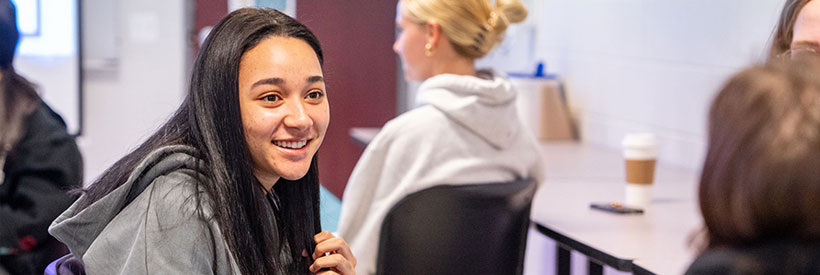
At JMU, WRTC 103: Rhetorical Reading and Writing is one in a series of General Education courses that positions you for success in higher education, in the workplace, and in your everyday lives. In our fast-paced world of tech-driven content, it is imperative to have the strong foundational knowledge that WRTC 103 provides, regardless of your personal and professional goals.
What to expect from the course
In WRTC 103, you will be challenged to think critically and creatively. WRTC 103 emphasizes rhetorical literacy, or the set of skills needed to be the kind of reader and writer who responds to a variety of purposes, audiences, and situations.
Throughout your WRTC 103 experience, you will learn to write effectively, collaborate with peers, and develop projects that have real-world impact.
Additional information
Information about general education courses can be found on the General Education Program Requirements webpage
Additional information about the writing major can be found at the School of Writing, Rhetoric and Technical Communication.
